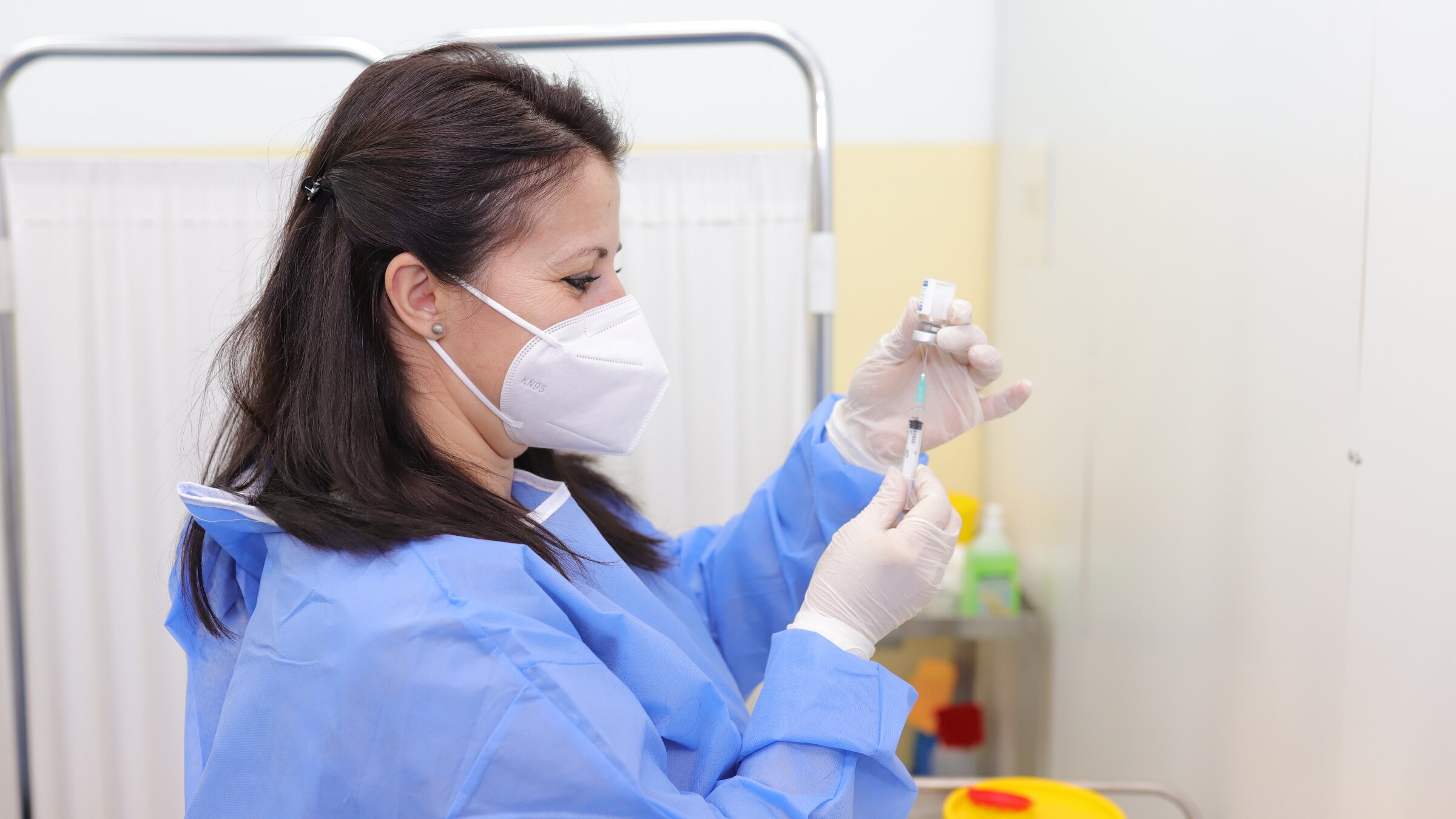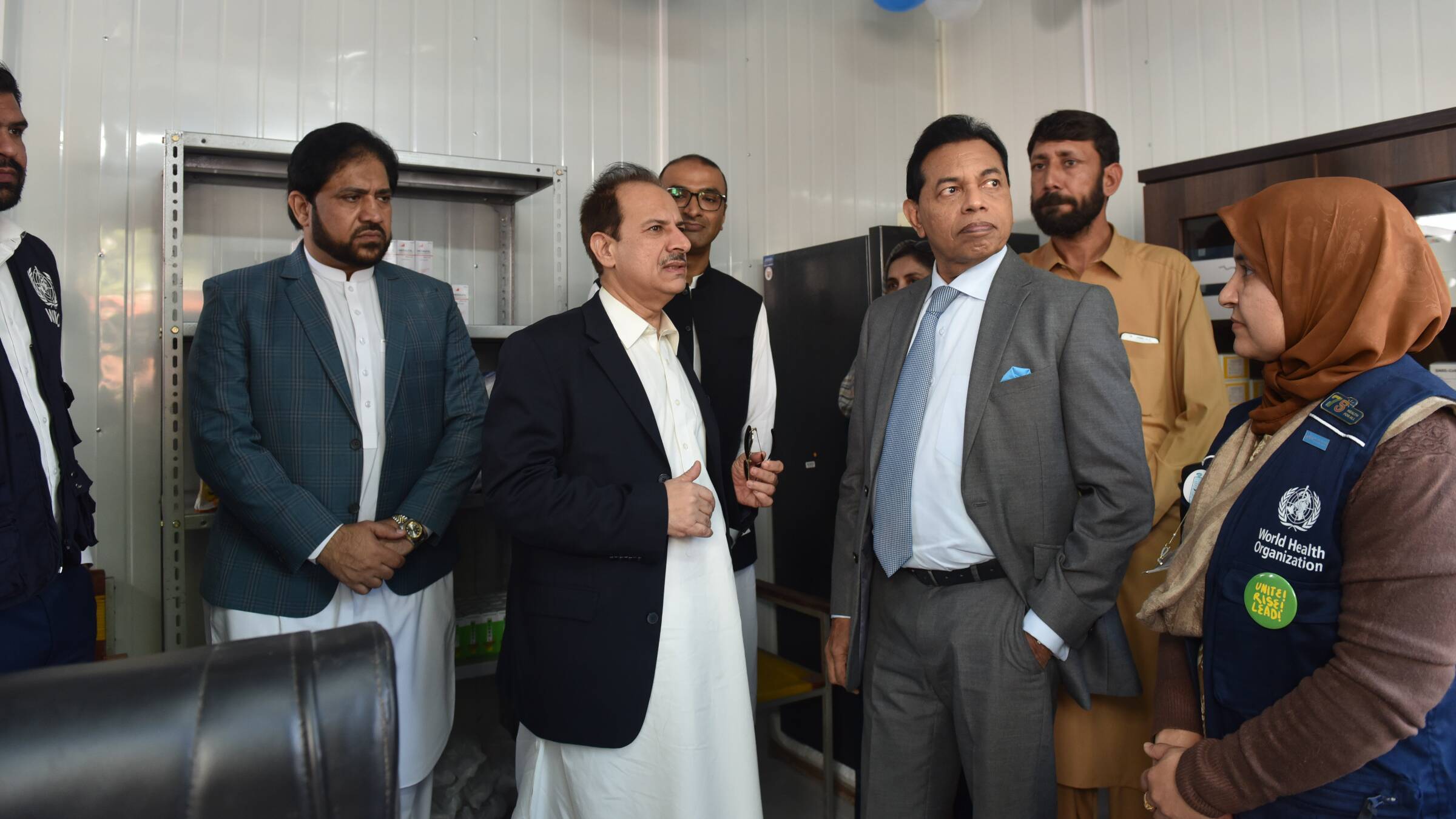
INVESTMENT ROUND: IMPACT STORY
Vaccinating children in disadvantaged and remote areas of Viet Nam
WHO’s commitment to ‘reach the unreached’ reduces health inequalities
.jpg?sfvrsn=ae8a7d6f_7) © WHO Viet Nam
© WHO Viet Nam
16
communes targeted
5
districts covered
4000
children vaccinated
During COVID-19, important routine immunization across Viet Nam was severely disrupted. Health centres closed, families were locked down and imports and exports of vials, syringes, and other medical supplies for vaccinations were interrupted.
In 2023, WHO partnered with the Tay Nguyen Institute of Hygiene and Epidemiology (TIHE) to improve immunization coverage and provide catch-up vaccinations for children who missed doses during the pandemic.
Thanks to WHO and TIHE support, health workers, in some disadvantaged communes of Dak Nong, attended outreach vaccination programme training.
They learned how to manage patients, make reports, and improve professional capacity for screening and pre- and post-vaccination management.
Now, instead of monthly immunization days at the health station, outreach vaccination is conducted several times a month in different places, making life-saving immunization more accessible for all. It also provides opportunities for health workers to share helpful facts with parents and caregivers about the benefits of immunization.
WHO worked with Viet Nam to reduce inequalities in accessing health services for people from vulnerable groups including those in hard-to-reach areas.
Thanks to the outreach vaccination programme and better road conditions, commune health station staff can travel to villages and hamlets and get children vaccinated.
The success of the programme has reinforced the commitment of local authorities to continue these efforts and is helping to build a stronger and healthier future generation of Vietnamese.
“Before this programme, we could only vaccinate 100 to 150 children a month. Since implementing the outreach vaccination programme at villages, we have seen an increase in vaccination rates with around 200 to 300 children vaccinated per month.” said Ms H’Tuy, assistant doctor, Dak Som commune health station in Dak Nong province (pictured in the image).
Return on investment
A fully funded WHO will enable the Organization to save 4.5 million lives through vaccination by 2028.
Reaching children with routine vaccinations in Viet Nam is an example of WHO delivering on improving health service coverage and immunization coverage improved, contributing to WHO's Fourteenth General Programme of Work (GPW 14), strategic objective 4.2.
Funding the future
WHO’s support to Viet Nam to reach remote populations with vaccinations wouldn’t have been possible without funding.
To continue to support initiatives like this, WHO needs sustainable financing, that is, predictable, flexible and resilient. This will allow WHO to have the greatest impact where it is needed most. Please support the WHO Investment Round.
/invest-visual-investing.png?sfvrsn=dbf748b9_20)

/ir-pie-chart-vaccination.tmb-1920v.png?sfvrsn=54ff767c_2)

